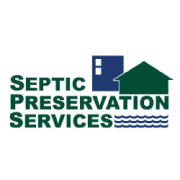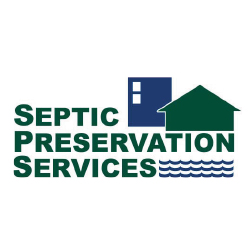Low-flow Toilets
 Low-flow toilets are a great way to reduce the amount of wastewater that ends up in a residential sewage system. If you live in an area that relies on private septic systems, as opposed to a municipal sewer system, it is important to do everything you can to reduce water usage to prevent an overflow of wastewater.
Low-flow toilets are a great way to reduce the amount of wastewater that ends up in a residential sewage system. If you live in an area that relies on private septic systems, as opposed to a municipal sewer system, it is important to do everything you can to reduce water usage to prevent an overflow of wastewater.
Septic systems are typically used in locations that aren’t connected to the city sewage system. A septic tank is a large tank, usually made out of concrete, that holds waste materials that are flushed through the residential sewage system. Inside the tank, bacteria works to break down the solid wastes, which are then released via wastewater into a drainage system.
Because low-flow toilets reduce water usage, they are ideal for cutting down on the amount of water that enters septic systems. Low-flow toilets are also used by homeowners that do not have a residential sewage system, as a means of reducing overall water consumption.
How Low-Flow Toilets Work
Low-flow toilets are designed to use less water than a standard toilet. The average residential toilet uses three to four gallons per flush, while low-flow toilets use around one-and-a-half gallons per flush. Recently, newer low-flow toilets have been produced that use even less water per flush by using a dual-flush system.
Much like septic tank systems, homeowners need to be aware of what gets flushed down low-flow toilets. The only thing that should ever be flushed down low-flow toilets that are connected to a septic tank system is toilet paper and organic waste. That means absolutely no paper towels, feminine products, diapers, newspapers or other paper materials.
The chemicals used to clean low-flow toilets that are hooked up to a residential septic system must also be chosen carefully. Bleach, abrasives, anti-bacterial cleansers and other bathroom cleaners should never be flushed into septic tank systems or washed down the drain. Use natural cleaners, such as baking soda or vinegar, to protect the good bacteria inside the septic tank that works to breakdown solid waste.
Part of a Healthy Septic Tank System
All of the parts of your residential septic system work together to effectively and efficiently process all the waste from your home. Low-flow toilets can be an important part of a well-run septic system. The best way to care for your system is to hire a professional septic system maintenance and inspection service.
A low-flow toilet is very easy to maintain and helps to reduce water usage in the bathroom. The fixture that helps to reduce water usage inside low-flow toilets may need to be adjusted every now and again. This fixture is the fill valve. It is used to maintain a proper level of water inside the toilet tank.
All-Clear Septic & Wastewater offers a preventative maintenance program, which can be used to keep tabs on the effectiveness of your system, catch potential problems before they get out of control and keep your residential sewage system running properly. Learning about your system and how it should be used and cared for, is another important part of good home ownership. Proper care and preventative maintenance, when used together, can prevent costly repairs and replacements. Call Septic Preservation Services at 877-378-4279 or visit www.septicpreservation.com



 5/25/16 Septic Preservation Services is working with bico breweries to resolve their wastewater issues. During the process of brewing beer wastewater is produced. This wastewater is very strong and can quickly cause a septic system to fail. For breweries that are on city sewer the wastewater typically exceeds the permissible limits of their discharge permit, exposing the brewery to potential fines. With proper treatment the waste strength can be reduced avoiding these costly problems. For more information call 877-378-4279 or visit w
5/25/16 Septic Preservation Services is working with bico breweries to resolve their wastewater issues. During the process of brewing beer wastewater is produced. This wastewater is very strong and can quickly cause a septic system to fail. For breweries that are on city sewer the wastewater typically exceeds the permissible limits of their discharge permit, exposing the brewery to potential fines. With proper treatment the waste strength can be reduced avoiding these costly problems. For more information call 877-378-4279 or visit w
 We could all use a little change. Sometimes just a little change can make a big difference. Your septic system is the same way. New technology makes it possible to provide biological remediation to your septic system and improve its effectiveness, by increasing its hydraulic capacity, and adding years of additional life.
We could all use a little change. Sometimes just a little change can make a big difference. Your septic system is the same way. New technology makes it possible to provide biological remediation to your septic system and improve its effectiveness, by increasing its hydraulic capacity, and adding years of additional life.
 What is most often to blame for Septic System Failure?
What is most often to blame for Septic System Failure?

